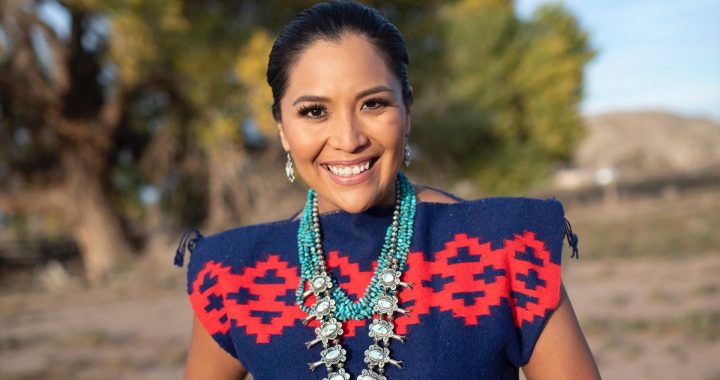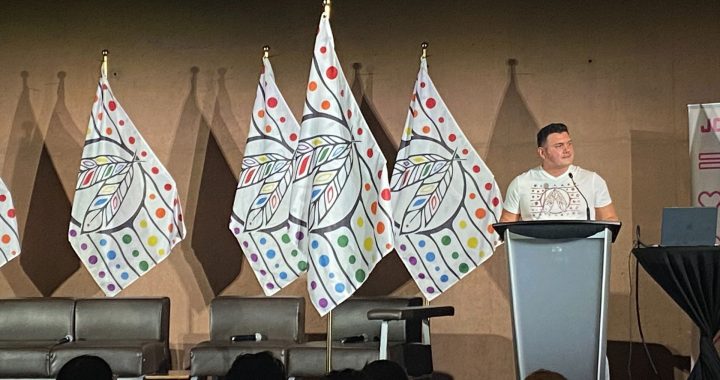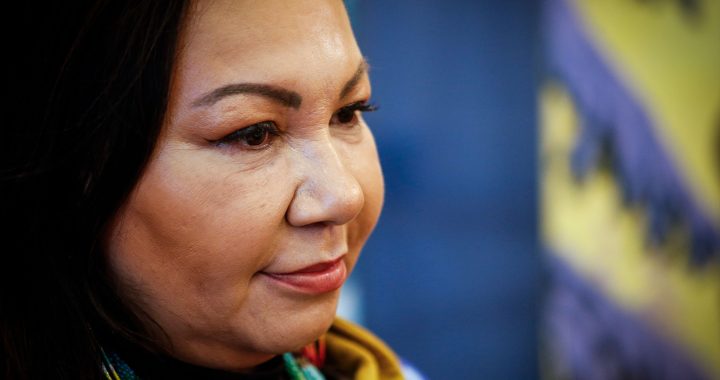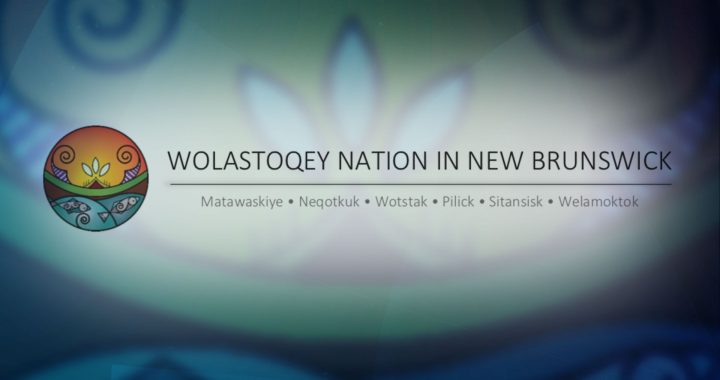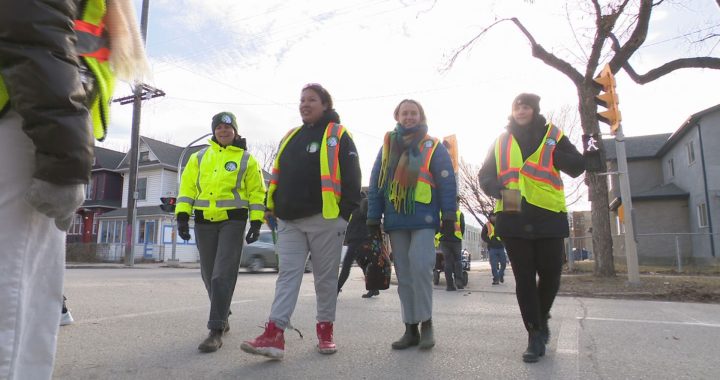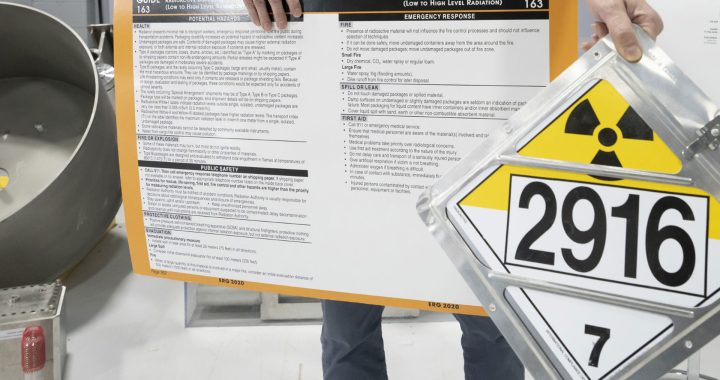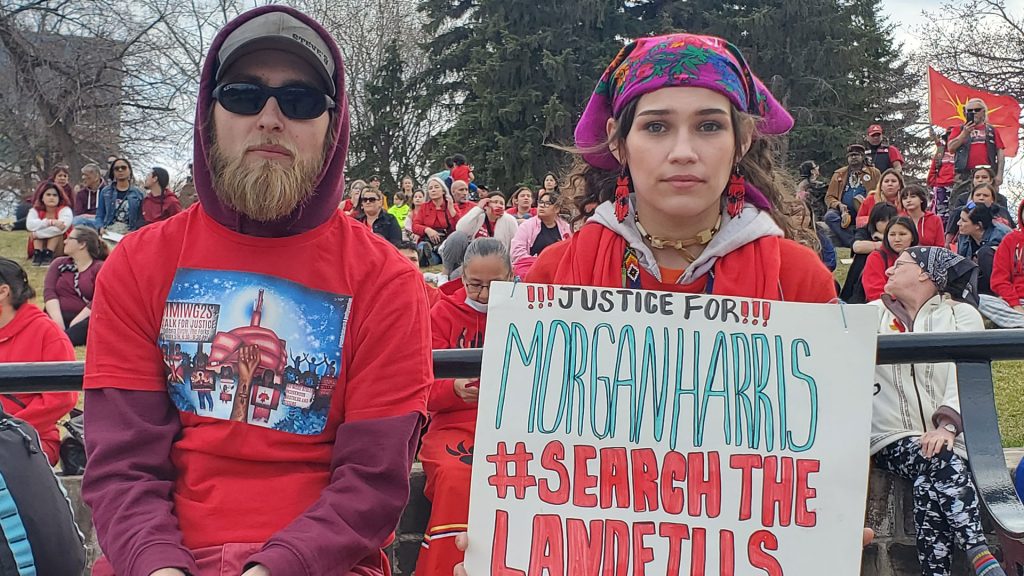
Cambria Harris, right, at the Red Dress Day march on May 5 in Winnipeg. Photo: Sav Jonsa/APTN.
Family and friends of two Indigenous women whose remains may be at a landfill outside of Winnipeg will learn the details of a study on Friday that is looking into whether it’s feasible to search for them.
The study was launched after Winnipeg police said it wouldn’t perform an extensive search of the Prairie Green landfill that they identified as a site where the women’s remains may be located.
Morgan Harris and Marcedes Myran, along with two others, were victims of an alleged serial killer who is believed to have committed the murders between March and May of last year.
Harris’ daughter Cambria has advocated for the extensive landfill search and organized the third annual MMIWG2S+ Walk for Justice in Winnipeg for Red Dress Day, roughly a year after her mother was murdered.
“It saddens me because, you know, it’s been a year since my mother Morgan went missing and was murdered as well and, you know, she still remains at the bottom of the landfill as well as one other woman,” she says.
“I’m here fighting for justice for all MMIWG2S+ families and Buffalo Woman too, who still remains unidentified – and that’s a large part of it.”
Buffalo Woman, also known as Mashkode Bizhiki’ikwewho, is an unidentified victim of the same alleged serial killer. She was given the name by Indigenous elders to respect her personhood until she is properly identified.
The location of her remains is still unknown, but the remains of the fourth woman, Rebecca Contois, were found in the Brady landfill.
The feasibility report was conducted by the Assembly of Manitoba Chiefs and will be released on May 12.
According to a spokesperson for Crown-Indigenous Relations, the federal department that financed the study, the minister is still reviewing the results.
Harris says society needs to do better at protecting Indigenous people from harm.
“Us gathering in numbers is important because it sends a message that we’re still here and that, you know, we’re not disposable and we’re always going to be here,” she says,
“There’s a time when this needs to end and that time’s now.”
According to Statistics Canada’s most recent report on homicide in Canada, Indigenous women made up 24 per cent of all female homicide victims in the country in 2021, a number they say has stayed consistent over the last decade.
That same year, Winnipeg had the highest number of Indigenous homicide victims compared to all other metropolitan areas across the country.
‘It’s really heartbreaking’
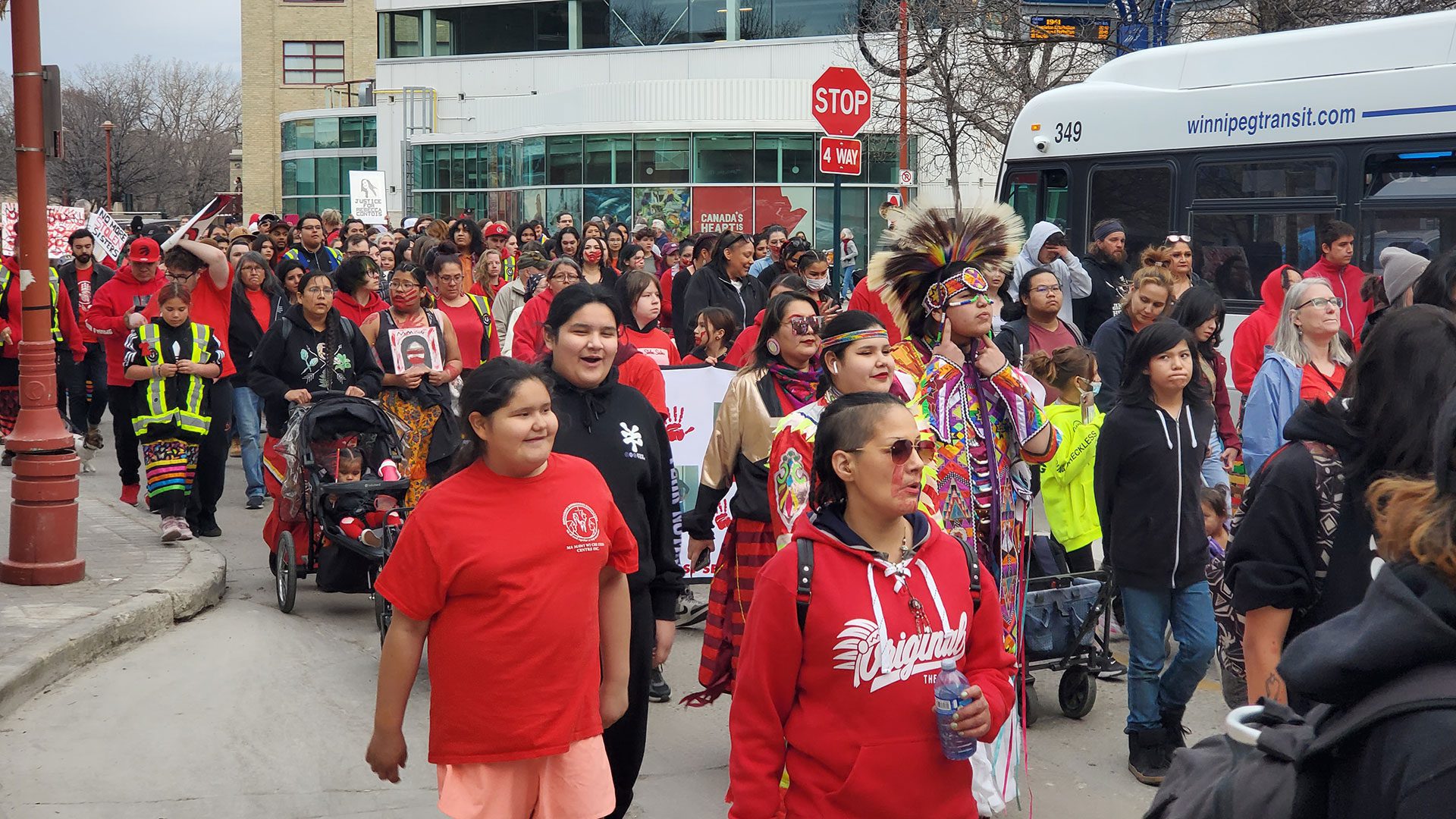
A sea of red washed over downtown Winnipeg during the walk while hundreds of supporters and family members of missing and murdered Indigenous people gathered to show they are not alone in their search for answers for their lost loved ones.
While many marchers were supporting family and friends, Carissa Chaput reason for attending was a personal one.
Chaput says she experienced human trafficking and was once held hostage.
“A lot of stuff happened to me and I decided I wanted to walk for my women and make sure that they know that I care and that there’s people here,” says Chaput.
She says that though she is heartbroken for those who are missing or murdered, she is grateful for the community’s support.
“It’s amazing, I’ve never actually seen this much support in a really long time. So, I’m actually surprised and um, it makes me really happy. It makes my heart feel really, really good to see this. It really does.”
She wants to see more people watching out for the safety of Indigenous women so they do not become part of the statistics.
“They deserve the justice that they need, they never deserved what happened to them at all,” says Chaput.
Waiting on Answers
With a red handprint on her face to symbolize silenced voices, Kyrra Kematch remembered her aunt Amber Guiboche during the walk.
Guiboche went missing in 2010, 5 days after her 20th birthday. Amber Guiboche missing in Winnipeg – APTN News
“It’s terrible going every day wondering where is she. Nobody knows where she is, nobody has anything. The last time we had information was 2014, it’s 2023 now. That’s a long time with nothing.”
Kematch says at first the investigation for her aunt seemed hopefully, until someone mentioned Guiboche may be a sex-worker. She wonders if that information is what stopped police from looking.
She says that Indigenous women are not disposable, no matter who they are, where they come from or what they do.
“Even if you take one of our sisters, you do not stop them. Their voice is still here, their stories are still here, their family is still here and searching. We’re not going to stop,” says Kematch.




